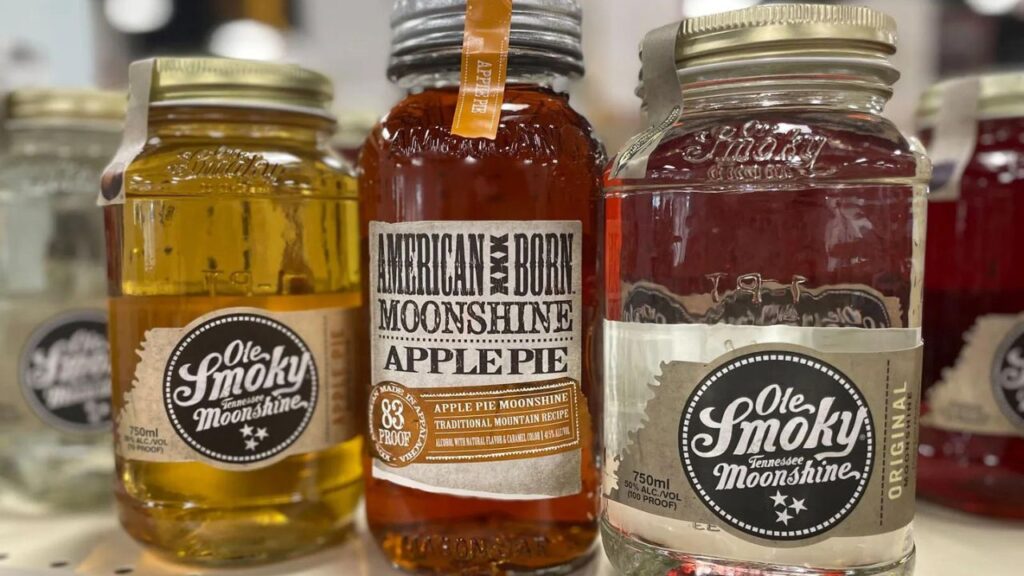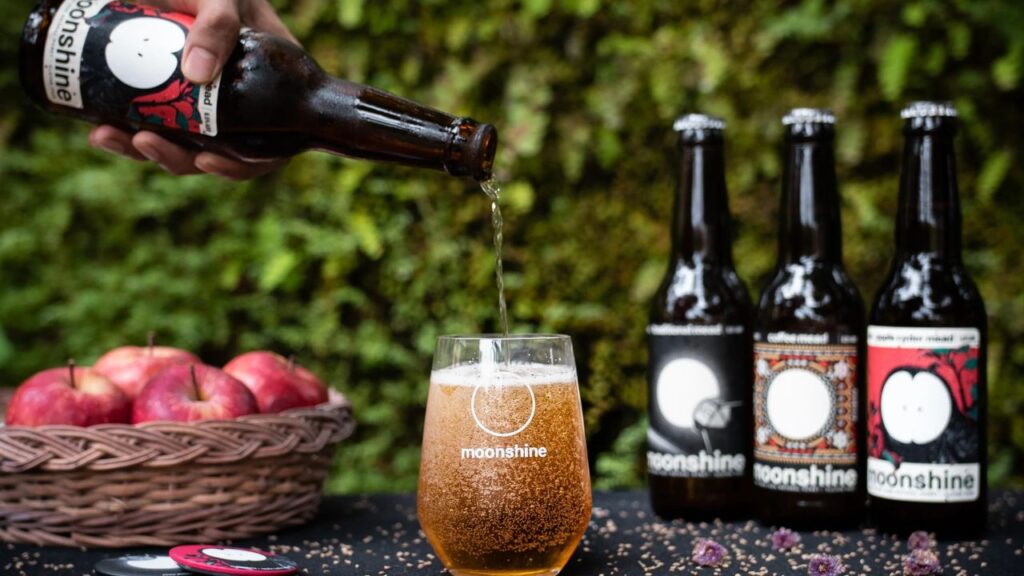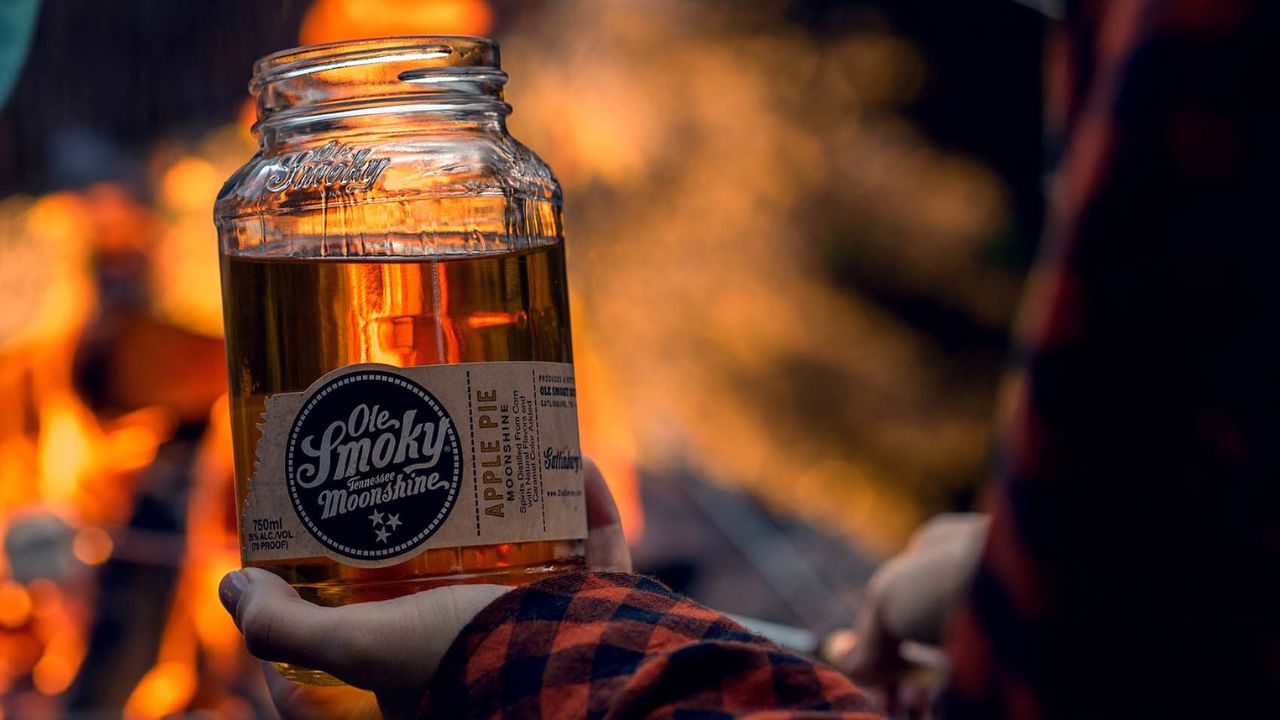Is Moonshine Illegal In Texas? Moonshine is illegal in Texas unless it is produced under a federal distilled spirits permit.
Moonshine, the often mysterious and rebellious spirit, is deeply intertwined with American folklore, particularly from the Prohibition era.
The word “moonshine” brings to mind hidden stills in the woods, smoky operations under the cover of night, and the thrill of outlaw distillation. But how does this history translate to the present day, especially in Texas?
Is moonshine illegal in Texas, or are there legal avenues to pursue if you’re interested in crafting your own?
In this comprehensive guide, we dive deep into the legal status of moonshine in Texas, the laws governing its production, and the options available for those interested in distilling spirits.
Contents
What Is Moonshine?
Definition and Origin
Moonshine is a term primarily used to describe high-proof distilled spirits produced illicitly, without government authorization. [Is Moonshine Illegal In Texas?]
The term originated during the Prohibition era in the United States (1920-1933), a time when the production, sale, and transportation of alcohol were banned nationwide.
During this period, many Americans turned to homemade alcohol production, often referred to as moonshine, to bypass the restrictions.
The name “moonshine” itself comes from the practice of making and transporting the liquor under the cover of darkness, by the light of the moon, to evade law enforcement.
Moonshine traditionally refers to corn whiskey, but it has expanded over time to include any illegally produced spirit.
It’s known for its high alcohol content and, in some cases, its dangerous impurities due to unregulated distillation processes.
How It’s Made
The process of making moonshine involves fermenting grains, fruits, or sugars to create a mash. [Is Moonshine Illegal In Texas?]
This mash is then heated in a still, and as the mixture heats up, alcohol vapors are produced. These vapors are collected and condensed back into liquid form, resulting in moonshine.
The distillation process is crucial for separating alcohol from water and other components, but without proper equipment and knowledge, it can result in a product that contains toxic substances like methanol, which can cause blindness or death.

Moonshine Laws in Texas
Federal Laws vs. State Laws
The production of distilled spirits, including moonshine, is heavily regulated in the United States.
Federal law mandates that anyone who wants to produce distilled spirits must first obtain a distilled spirits permit from the Alcohol and Tobacco Tax and Trade Bureau (TTB).
This regulation applies across the country, and Texas follows suit by enforcing both federal and state-specific laws.
Texas law is clear on this matter: producing moonshine without the proper permits is illegal. The Texas Alcoholic Beverage Code requires compliance with both federal and state regulations.
Even possession of equipment that could be used for distilling alcohol without proper registration and permits is illegal. Texas takes alcohol regulation seriously, with a focus on consumer safety and taxation.
Licensing and Permits
For those who wish to produce distilled spirits legally in Texas, there are specific steps to follow. Obtaining a license involves both federal and state procedures:
- Federal Permit: To legally distill spirits, a federal permit is required from the TTB. The application process includes providing detailed information about the production process, equipment, and premises. A background check is also conducted to ensure compliance with federal laws.
- State Permit: In addition to the federal permit, a state permit from the Texas Alcoholic Beverage Commission (TABC) is needed. This permit ensures that the operation complies with Texas laws, including zoning regulations, environmental standards, and other state-specific requirements.
Both permits are necessary, and the process is rigorous. The TTB and TABC require strict adherence to safety, health, and operational guidelines, ensuring that distilled spirits are produced safely and responsibly.
Penalties for Illegal Production
Violating moonshine laws in Texas can result in severe consequences. The state imposes significant penalties for the unlicensed production or possession of moonshine, including:
- Fines: Individuals caught producing moonshine without proper licensing can face fines ranging from hundreds to thousands of dollars, depending on the scale of the operation and prior offenses.
- Imprisonment: More serious offenses, such as large-scale distribution or repeated violations, can lead to jail time.
- Seizure of Equipment: Law enforcement can confiscate distillation equipment, vehicles, and other assets associated with illegal moonshine production.
- Tax Evasion Charges: Since unlicensed moonshine production often involves tax evasion, additional charges may be applied for failing to pay taxes on alcohol production.
Why Is Moonshine Illegal Without Proper Licensing?
Health and Safety Concerns
The primary reason for the strict regulation of moonshine production is public safety. Unlike licensed distilleries, which must adhere to stringent safety and quality standards, unregulated moonshine operations pose significant health risks.
The distillation process, when done improperly, can result in dangerous levels of methanol, a toxic alcohol that can cause severe health issues such as blindness, organ failure, and death.
Methanol contamination has been a well-documented problem in illicit moonshine production. Licensed distillers use specialized equipment and procedures to eliminate methanol and other harmful byproducts, ensuring that the final product is safe for consumption.
In contrast, home distillers often lack the knowledge and equipment to make these distinctions, leading to potentially lethal results. [Is Moonshine Illegal In Texas?]
Tax and Revenue Considerations
The production and sale of alcohol are significant sources of tax revenue for both the federal and state governments. Alcohol taxes fund various public programs, including healthcare, education, and law enforcement.
Illegal moonshine operations bypass these taxes, resulting in lost revenue for the state and federal governments. [Is Moonshine Illegal In Texas?]
By regulating alcohol production and ensuring proper taxation, the government can maintain control over alcohol quality and collect the necessary funds to support public services.

Can You Legally Make Moonshine at Home in Texas?
Homebrewing vs. Distilling
There is often confusion between homebrewing and home distilling. In Texas, as in most states, homebrewing beer or wine is legal for personal use, provided it does not exceed certain production limits.
However, distilling spirits like moonshine is a different matter entirely. Distilling any form of spirit without a federal permit is illegal, even if it is for personal consumption.
While many may think that small-scale production for personal use is harmless, the law does not differentiate between small-batch and large-scale production when it comes to distilling spirits. The production of moonshine without proper permits, regardless of quantity, is considered illegal.
Legal Limits and Exceptions
There are no legal exceptions in Texas for the home production of moonshine without the proper permits. [Is Moonshine Illegal In Texas?]
The state has made it clear that anyone interested in distilling spirits must comply with both federal and state regulations to avoid legal consequences.
For those interested in exploring distillation as a hobby, obtaining the necessary permits is essential.
How to Obtain a Distilling Permit in Texas
Application Process
The process of obtaining a distilling permit is thorough and involves multiple steps:
- Federal Permit Application (TTB): Start by applying for a distilled spirits permit from the Alcohol and Tobacco Tax and Trade Bureau (TTB). This application requires detailed information about the type of spirits you intend to produce, the equipment you will use, and the location of the production facility.
- State Permit Application (TABC): Next, apply for a state permit from the Texas Alcoholic Beverage Commission (TABC). The TABC application will require additional information specific to Texas laws and regulations, including zoning and environmental standards.
- Compliance with Zoning Laws: Ensure that your distilling operation complies with local zoning laws. Some areas may have restrictions on alcohol production facilities.
- Safety Inspections: Your equipment and premises may need to pass safety inspections to ensure they meet federal and state standards. [Is Moonshine Illegal In Texas?]
- Background Check: A background check is typically required to verify that the applicant does not have a criminal record that would disqualify them from obtaining a permit.
Costs and Requirements
The costs associated with obtaining these permits can vary significantly depending on the scale of the operation and the type of spirits being produced.
There are initial application fees, annual renewal fees, and costs associated with inspections and compliance measures.
Additionally, applicants must maintain accurate records and adhere to reporting requirements to avoid penalties. [Is Moonshine Illegal In Texas?]
The Impact of Moonshine on Texas Culture
Moonshine has a storied history in American culture, and Texas is no exception. The state’s expansive rural areas and independent spirit have made it a notable location for moonshining activity over the years.
While illegal moonshine production has largely diminished due to strict laws and enforcement, the cultural fascination with moonshine remains.
Today, legal distilleries across Texas embrace this history by producing small-batch, craft spirits that pay homage to the state’s moonshining past.
These distilleries operate under strict guidelines and contribute to the state’s economy through tourism, job creation, and tax revenue. [Is Moonshine Illegal In Texas?]
Final Verdict
Is moonshine illegal in Texas? Yes, moonshine is illegal to produce without the proper federal and state permits. The state enforces strict regulations to ensure the safety of consumers and to collect taxes on alcohol production.
While moonshine has deep roots in Texas history, it is crucial to follow the legal requirements if you are interested in distilling spirits.
Producing moonshine without proper permits can lead to severe penalties, including fines, imprisonment, and confiscation of equipment.
If you are passionate about distilling, consider pursuing it legally and contribute to the rich tapestry of Texas craft spirits. [Is Moonshine Illegal In Texas?]
See Also: Are Pistol Braces Illegal In Texas?
FAQs
Is it legal to own a still in Texas?
Yes, it is legal to own a still in Texas, but using it to distill alcohol without a permit is illegal.
Can you legally sell homemade moonshine in Texas?
No, selling homemade moonshine is illegal without proper licensing and adherence to state and federal regulations.
What are the penalties for illegal moonshine production in Texas?
Penalties can include hefty fines, imprisonment, and seizure of equipment. [Is Moonshine Illegal In Texas?]
Is moonshine stronger than regular alcohol?
Moonshine can be significantly stronger than regular spirits, often containing higher alcohol content due to lack of regulation.
How can you report illegal moonshine operations in Texas?
Illegal moonshine operations can be reported to the Texas Alcoholic Beverage Commission (TABC) or local law enforcement.
Conclusion: Is Moonshine Illegal In Texas?
Understanding the laws around moonshine in Texas is crucial for anyone interested in the craft of distilling. [Is Moonshine Illegal In Texas?]
While the idea of creating your own moonshine may seem appealing, it’s important to remember the legal and safety implications.
Always adhere to the legal requirements to avoid severe consequences. Following the correct process allows you to legally enjoy the art of distillation, contribute to the economy, and keep Texas’s rich history alive in a safe and regulated manner.

Hello guys, I’m Trey Simpson from Los Angeles. After completing my J.D., I noticed a lack of clear information online about laws in different U.S. states. So, I created this blog to help. Now, I’m a lawyer and continue blogging. Thanks for visiting!

